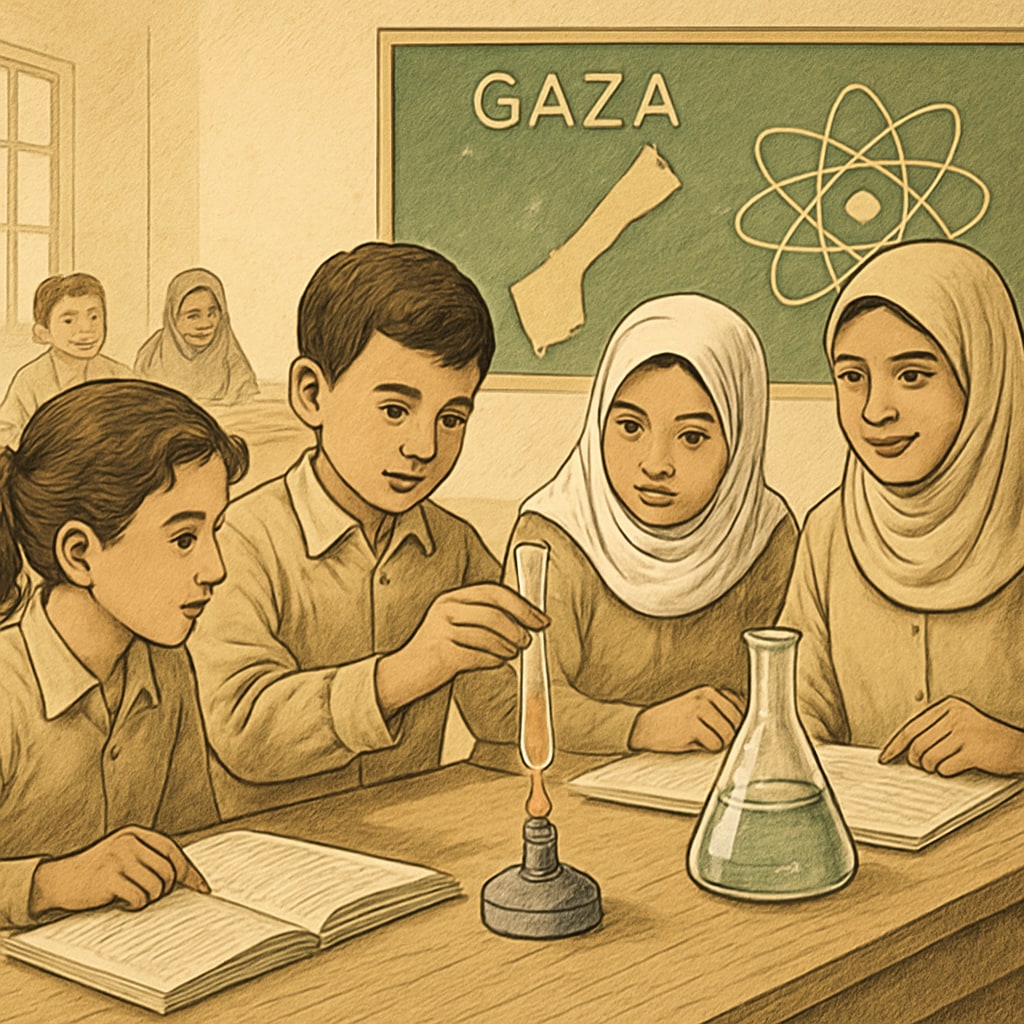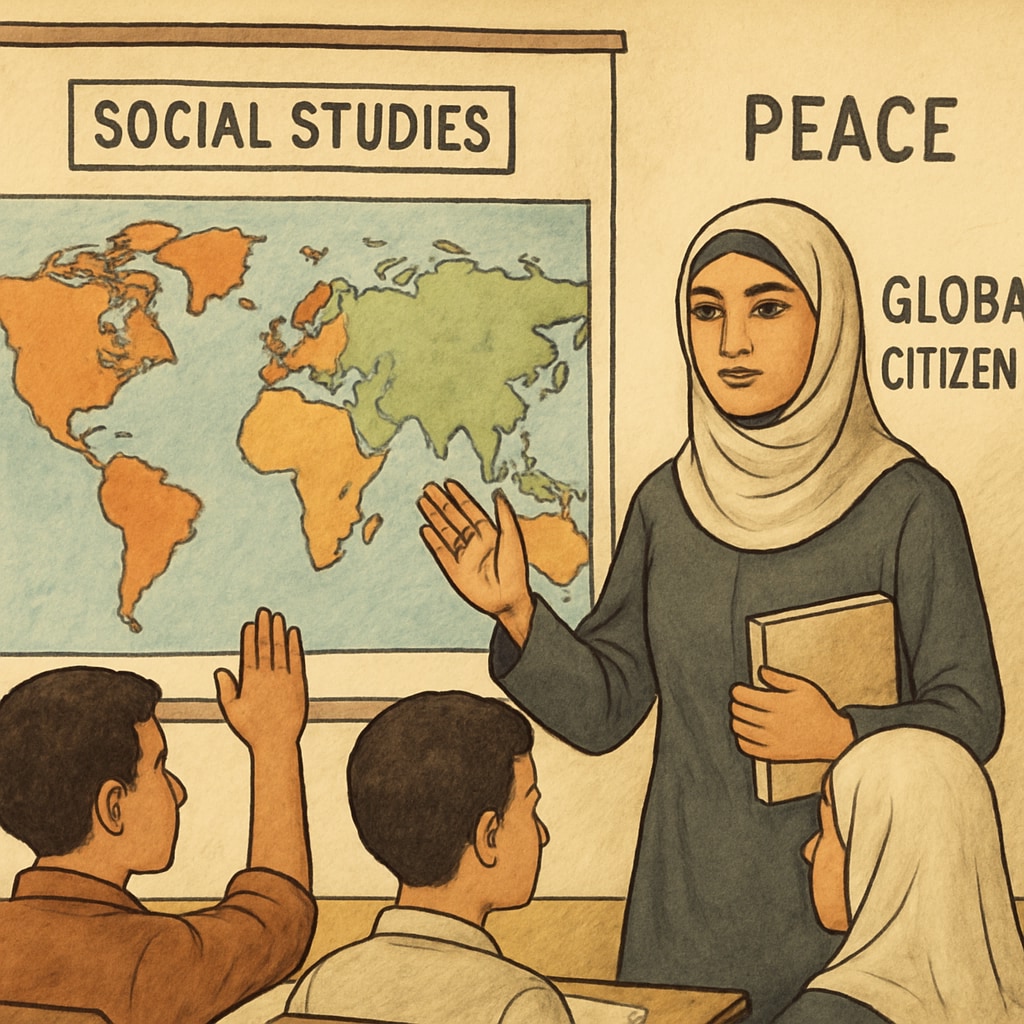The development of science and social studies teaching curricula for Gaza schools is a critical step in rebuilding hope and fostering progress in a region recovering from conflict. Public schools in Gaza face unique challenges, including limited resources and the need to balance respect for local cultural values with the promotion of global scientific thinking and peaceful citizenship. This article examines the importance of creating effective curricula, the obstacles encountered, and potential strategies to overcome them.
Why Science and Social Studies Curricula Matter
Science and social studies are essential subjects that shape students’ understanding of the world, their role in society, and the principles of inquiry and evidence-based reasoning. In Gaza, these disciplines have the potential to empower students with critical thinking skills and a greater awareness of global challenges, such as environmental sustainability, technological innovation, and social justice.
Effective curricula can also serve as a bridge to peace, teaching students the importance of empathy, cooperation, and respect for diverse perspectives. For example, social studies lessons can explore historical events and cultural traditions in ways that promote understanding and reconciliation. Meanwhile, science education fosters curiosity and problem-solving abilities critical for the region’s development.

Challenges in Curriculum Development for Gaza Schools
Designing science and social studies curricula for Gaza schools comes with significant challenges:
- Resource Constraints: Many schools lack basic materials, such as textbooks, laboratory equipment, and access to technology.
- Cultural Sensitivity: Curricula must respect local traditions and values while introducing global concepts and perspectives.
- Post-Conflict Trauma: Students and educators often face psychological challenges that can impact teaching and learning.
- Teacher Training: Many educators may require support and professional development to effectively deliver new curricula.
Addressing these issues requires collaboration among local educators, international organizations, and curriculum experts. For example, UNESCO and UNICEF have provided frameworks for post-conflict education recovery, emphasizing the importance of culturally relevant and inclusive resources.

Strategies for Building Effective Curricula
Despite the challenges, there are several strategies that can help create impactful science and social studies curricula for Gaza schools:
- Community Involvement: Engage local educators, parents, and students in the curriculum design process to ensure that it meets the community’s needs and values.
- Integration of Peace Education: Include lessons that promote conflict resolution, cultural understanding, and mutual respect.
- Focus on Inquiry-Based Learning: Encourage students to explore scientific concepts and social issues through hands-on activities and critical questioning.
- Utilize Open Educational Resources: Leverage free, high-quality materials available online to supplement limited resources.
- Teacher Support Programs: Provide professional development workshops and mentorship opportunities to help educators adapt to new teaching methods.
Additionally, partnerships with international organizations can provide funding, expertise, and access to innovative teaching tools. For example, the UNESCO Education for Sustainable Development initiative offers valuable insights into creating curricula that align with global sustainability goals.
The Path Forward
Rebuilding the education system in Gaza is not only about recovery but also about creating a foundation for future growth and peace. Science and social studies curricula play a pivotal role in this process, equipping students with the knowledge and skills to contribute positively to their communities and the broader world.
By prioritizing culturally sensitive, inquiry-driven, and peace-oriented education, Gaza schools can empower the next generation to overcome adversity and build a brighter future. As a result, the development of science and social studies teaching materials is not just an academic endeavor—it is an investment in hope, resilience, and transformation.


